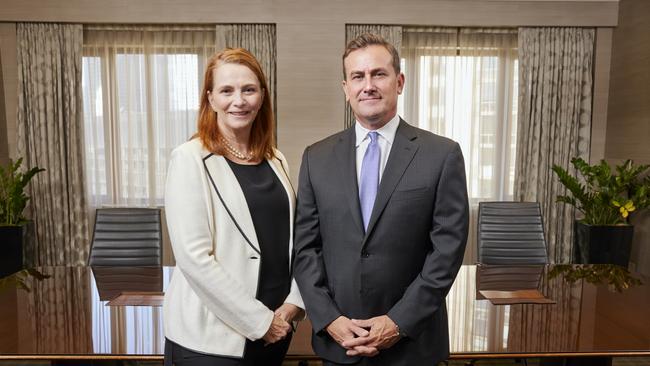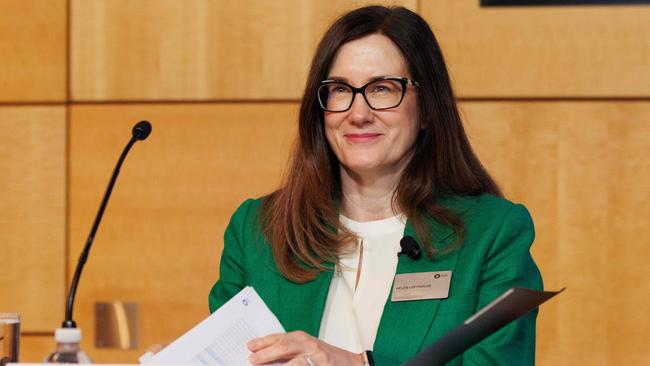Investor trust in James Hardie eroded, says Ownership Matters
The building products giant remains under attack from shareholders over its $14bn deal to buy US rival Azek, amid concern new governance pledges may fail to placate investors.

Building products giant James Hardie remains under attack from investors over its $14bn deal to buy US rival Azek, amid concern a new set of corporate governance pledges may fail to restore confidence among shareholders.
James Hardie has come under fire for sanctioning the merger deal without putting it to an investor vote, prompting the Australian Securities Exchange to more broadly review shareholder approvals required for companies to embark on takeovers.
The building products supplier had planned to move its primary listing to New York from Australia but on Monday said it would not seek a foreign-exempt listing status and would hold a vote before any decision to delist.
Shareholder advisory firm Ownership Matters – which wrote a letter on behalf of Australia’s top investors, attacking the ASX decision to waive through the merger without a vote – said trust in James Hardie had been eroded with institutional investors.
“The trust levels in the board and management are so low that the precise nature of their commitment is difficult to ascertain,” Ownership Matters boss Dean Paatsch told The Australian.
“There’s lots of intentions, but it’s unknown what it really means for the shift of their primary listing (to New York) in the future. How do you make good on this idea that you’ll get a primary listing in the NYSE, when your primary listing then will be maintained here.”
As part of the deal, James Hardie planned to move its primary listing from the ASX to New York, although investors will be able to retain share exposure here under a local CDI listing.
“Investors are far more circumspect about the promises that have been made by James Hardie, given the low level of trust between board and management,” Mr Paatsch said. “Everyone is keen to make sure that whatever promises that are made are bankable and that this is not fool’s gold.”
Some investors are furious about the dilution they face given James Hardie will have to issue 35 per cent more shares in itself to Azek investors.
Allan Gray managing director Simon Mawhinney, who co-signed the investor letter earlier in April, said the current ASX listing rule and the application of waivers was a “nonsense” for shareholders.
“It doesn’t seem like it serves shareholders well. I think the only thing it serves well are investment bankers and lawyers,” Mr Mawhinney said.
“I think this is a major flaw in the rules and the sooner it is resolved the better.”

The ASX conceded on Sunday that the outcry over the James Hardie waiver had led to a spike in investor interest in shareholder sign-off for mergers and takeovers of listed companies undertaking significant transactions, pledging to update an analysis from 2017 on required approvals. ASX chief executive Helen Lofthouse and finance boss Andrew Tobin have been holding meetings with investors to ease anger over the issue.
Mr Paatsch said it was a sensible but overdue step by the bourse operator.
“This loophole in the ASX listing rules – that you can issue up to 100 per cent of shares as part of a transaction on a non pro rata basis to a third party without shareholder approval – has been a gaping hole in the listing rules that we’ve been talking about for 17 years.”
The Ownership Matters boss argues the ASX should ultimately require shareholder approval when a company issues 25 per cent of its scrip, putting it on par with international peers including Singapore and Canada.
“If its norms get colonised by the transaction industry, investors are the ones that pay the price and bankers get their bonuses and move on,” Mr Paatsch said. “It’s encouraging that quite genuinely the ASX has realised that it depends on the confidence of investors and investors have had their confidence shaken by the James Hardie transaction.”
James Hardie also announced it would include keep Anne Lloyd as independent chair after completion of the deal and ensure a majority of its directors are independent. It will continue to align its executive remuneration with shareholder value generation, including holding an advisory vote on the policy each year.
Ms Lloyd has chaired James Hardie since November 2022, with her current term expiring in November this year.
Shares in James Hardie rose 1.24 per cent to $36.83 but have shed 26 per cent of value so far this year.
James Hardie applied for and was granted the waiver under listing rule 7.2, with the ASX providing a rationale for its decision earlier in April.
The explanation wasn’t enough to satisfy investors, including ASX shareholders such as AustralianSuper and UniSuper.
Leading investors said the process had undermined shareholders in all ASX companies, and the ASX came under heavy fire from critics who accused it of hiding behind confidentiality obligations to justify secrecy in allowing James Hardie to circumvent a shareholder vote.
The transaction came with a record break fee of $US272m ($425m) if it failed to complete and – to the frustration of many James Hardie investors – allowed Azek shareholders to vote.






To join the conversation, please log in. Don't have an account? Register
Join the conversation, you are commenting as Logout